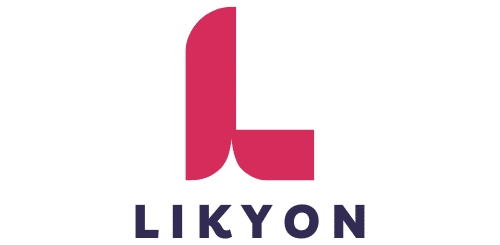How Can Fetal Health Monitoring Technologies Reduce Risks During Pregnancy?

Pregnancy is a journey filled with anticipation and happiness, yet it can also be a time of anxiety and uncertainty. As expectant parents, you may worry about the health and safety of the unborn child, and how to ensure their wellbeing. Modern medical technology has made significant strides in alleviating these fears, and one such advancement that is providing reassurance and comfort to expectant mothers worldwide is fetal health monitoring. This article will discuss how this technology, when utilized correctly, can drastically reduce the risks associated with pregnancy, ensuring a safe and healthy journey for both mother and child.
The Importance of Fetal Health Monitoring
Before delving into the specifics, it’s crucial to understand the significance of fetal health monitoring. These systems are designed to monitor the health and well-being of your unborn child, capturing vital data that can inform healthcare decisions.
Sujet a lire : How Can Expressive Writing Benefit Cancer Patients During Recovery?
Healthcare professionals use these monitoring systems to track a variety of parameters, such as the baby’s heart rate, movements, and overall growth. The continuous flow of data allows them to detect any potential health issues early on and intervene if necessary. The use of these wearable sensors is becoming increasingly popular, with many expecting parents choosing to invest in these devices for their peace of mind.
Fetal Monitoring: How It Works
Fetal monitoring technologies use sensors that are carefully placed on the mother’s abdomen. These sensors detect the baby’s heartbeat and movements, and transmit this information to a monitoring system.
Cela peut vous intéresser : What Are the Safety and Efficacy of Herbal Supplements in Treating Anxiety?
The technology is non-invasive and completely safe for both the mother and the baby. It allows healthcare professionals to monitor the fetus’s vital signs, like heart rate, movements, and sometimes even blood oxygen levels. By continuously recording this data, doctors can track the fetus’s growth and wellbeing, detecting any potential issues early.
The technology is not just beneficial for healthcare professionals. It also empowers you as expecting parents to take control of your pregnancy, allowing you to monitor your baby’s health at home. This is an invaluable tool, especially for individuals with high-risk pregnancies, as it can provide reassurance and enable early detection of potential difficulties.
Fetal Monitoring and Maternal Health
Fetal health monitoring is not just beneficial for the unborn child; it also significantly contributes to maternal health. Pregnancy can put a lot of stress on the mother’s body, increasing the risk of complications. By monitoring the baby’s health, doctors can also detect any potential risks to the mother.
For example, abnormal heart rate patterns in the fetus can indicate distress, which may be due to problems with the placenta or the umbilical cord. Early detection of these issues allows for prompt medical intervention, reducing the risk of severe complications for the mother.
Furthermore, the peace of mind provided by these monitoring systems can significantly reduce the stress levels in expecting mothers. Anxiety and stress during pregnancy can lead to several health issues, including high blood pressure and gestational diabetes. By providing reassurance about the baby’s wellbeing, fetal monitoring can help ensure a healthier and more enjoyable pregnancy journey for the mother.
Advancements in Fetal Monitoring Technology
In recent years, fetal monitoring technology has seen some revolutionary advancements. Traditional monitoring systems required the mother to visit the doctor’s office frequently for check-ups. However, the advent of wearable sensors has made it possible for mothers to monitor their baby’s health from the comfort of their own home.
Also, the data from these wearable sensors can be easily shared with healthcare providers, allowing for real-time monitoring and immediate intervention if needed. This development has been particularly beneficial during the COVID-19 pandemic, as it has reduced the need for pregnant women to visit hospitals for routine check-ups, thereby minimizing their risk of exposure to the virus.
Some of these wearable devices even allow for crossref with healthcare databases. This feature enables the system to identify potential risk factors based on the patient’s medical history and current health status. Such predictive analytics can help in anticipating complications and taking preventive measures.
Reducing Health Risks with Fetal Monitoring
Undoubtedly, fetal health monitoring plays a crucial role in reducing health risks during pregnancy. Early detection and intervention are key in preventing many pregnancy-related health issues. By monitoring the baby’s health continuously, doctors can detect any anomalies in the heart rate or movement patterns, indicating potential problems.
Furthermore, the advancements in wearable technology mean that even high-risk pregnancies can be monitored closely without the need for frequent hospital visits. This not only provides peace of mind to the expecting parents but also reduces the risk of exposure to infections.
Indeed, as technology continues to evolve, we can expect even greater strides in fetal health monitoring, making pregnancy a safer and more enjoyable journey for all women. As we look to the future, one thing is clear: technology plays an integral role in improving maternal and fetal health, and its importance cannot be overstated.
The Impact of Fetal Health Monitoring on High-Risk Pregnancies
Pregnancies with potential complications, often referred to as high-risk pregnancies, can benefit tremendously from fetal health monitoring. This term includes a variety of factors, from maternal age, pre-existing medical conditions, multiple pregnancies (twins or more), or issues arising during pregnancy such as gestational diabetes or preeclampsia.
Fetal health monitoring can be particularly beneficial in these cases. The continuous flow of data on the baby’s heart rate and movements can provide essential information to healthcare providers. If the fetal heart rate shows any anomalies, it allows for the timely intervention that can prevent serious complications.
Moreover, modern fetal monitoring systems offer more than just heart rate tracking. They can also monitor other health indicators like fetal growth and blood pressure. This is crucial as issues like slow fetal growth or high blood pressure can lead to complications such as premature birth or low birth weight.
Wearable devices play a crucial role in this context. An expecting mother with a high-risk pregnancy can use these devices to monitor her baby’s health at home, thus reducing the need for frequent hospital visits. In fact, a recent study in Fetal Medicine confirmed that home monitoring of high-risk pregnancies can significantly reduce hospital admissions and preterm births.
The ability to share data from these wearable devices with healthcare providers in real time is another revolutionary advancement in fetal monitoring. This facilitates immediate intervention if required, further reducing the risks during pregnancy.
The Future of Fetal Health Monitoring: Predictive Analytics and Beyond
As we look ahead, the future of fetal health monitoring is promising. With advancements in technology, we can expect even more effective methods of monitoring and mitigating health risks during pregnancy.
One of the most exciting developments in this field is the integration of predictive analytics into fetal monitoring systems. By cross-referencing data from wearable devices with healthcare databases, these systems can identify potential risk factors based on the patient’s medical history and current health status.
For instance, if an expectant mother has a history of high blood pressure, the monitoring system can alert her and her medical team to any signs of preeclampsia—a condition characterized by high blood pressure during pregnancy. This allows for early intervention and can help prevent serious complications.
Moreover, the use of predictive analytics can also help anticipate complications related to gestational age, physical activity, and maternal health. The Mayo Clinic is currently pioneering this kind of research, leading to a future where fetal monitoring systems could become even more personalized and accurate.
Conclusion
In conclusion, fetal health monitoring technologies play a crucial role in reducing risks during pregnancy. They provide valuable data on the baby’s heart rate, movements, and overall growth, allowing for early detection and intervention in case of potential health issues.
Particularly beneficial for high-risk pregnancies, these technologies have been further advanced with the development of wearable devices that enable home monitoring. With these innovations, pregnant women can enjoy a safer and more reassured pregnancy journey.
Moreover, the integration of predictive analytics into these systems heralds an exciting future for fetal health monitoring. These advancements will allow for even greater personalization and accuracy in monitoring, further reducing health risks for both mother and child. As we move forward, the importance of technology in improving maternal and fetal health is undeniable.
Indeed, fetal health monitoring systems are not just about technology; they are about empowering expectant parents with knowledge and control over their pregnancy. They provide reassurance, reduce stress, and ultimately contribute to a healthier, safer pregnancy experience—a goal that is undeniably worth pursuing.
